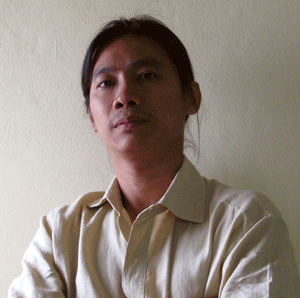When Tigers Eat Grass
There’s no way to know what the future holds for Burma, but it’s safe to say some things will never change.
When we invited some prominent Burma watchers to contribute their forecasts for the year ahead, it came as no surprise that most saw little hope of any real improvement. Sadly, I have to concur with their pessimistic assessment of the country’s near-term outlook. From past experience, I know that the naysayers have a better record of getting it right than the starry-eyed optimists.
 |
| Aung Zaw, Irrawaddy Editor (Photo: The Irrawaddy) |
Burma’s military leaders have run the country for nearly half a century, and there’s no reason to believe that the 2010 election is anything other than their way of ensuring that they remain the dominant political force for decades to come. Snr-Gen Than Shwe may step down as the self-appointed head of state, but not before he has installed a new generation of clones who can be counted on to remain loyal to him and his family. Failing this, he may even decide to nominate himself president for life, effectively ruling out any possibility of change for the foreseeable future.
The wisest attitude to take to the military-sponsored 2010 election is to keep your expectations very low. Even if the election sets the stage for a transition over the next five to 10 years, the road ahead will be not only bumpy, but also, very likely, bloody. Be prepared to see the vicious cycle of uprisings and brutal suppression repeat itself.
When they are not using brute force to keep their opponents in check, Burma’s ruling clique will be busy trying to deceive and manipulate those who seek to deprive them of power. They will use false promises and faint glimmers of “progress” to neutralize foreign critics and rely on ruthless purges to eliminate any challenges from within their own ranks.
This means that for the more than 2,000 political prisoners and hundreds of thousands of internally displaced people in Burma, there will be no relief. With a significant percentage of its population now struggling to survive in foreign lands as refugees or migrant workers, and most of the rest barely subsisting in the country’s moribund economy, Burma will remain at risk of becoming a failed state.
On the international front, the generals will be disappointed to discover that targeted sanctions are not going to go away as long as the suppression of dissidents continues. Aung San Suu Kyi and other political leaders and activists—young and old, in prison or in exile—will retain their role as spokespeople for the democratic aspirations of the country.
The military occupation of Burma’s ethnic states will lead to further atrocities against local people and continue the ongoing degradation of the environment in these once pristine regions through relentless looting of natural resources. The north will be particularly tense in the months ahead, as cease-fire groups resist pressure to integrate into the military apparatus that for decades has sought to resolve ethnic issues through the subjugation of minorities.
As all of this goes on, some outside the country will insist that the junta’s “road map” is actually leading to a better future. Apologists for one of the world’s nastiest regimes will spin the news to suit their own agendas, disregarding the facts and playing into the hands of the generals. Self-appointed “experts” and misguided government policy makers, both in the West and in Asia, will happily accept the regime’s promises at face value because they know that they will never have to live under the junta’s rule.
As a result, the Burmese people will be forced to struggle on as best they can, knowing that the international community’s efforts to persuade the generals to listen to reason are pointless. But they will remain defiant in their hearts, refusing to buy the lie that tigers can change their stripes or—as the Burmese saying goes—learn to eat grass.
This fact alone will give them the strength to face the future, whatever it may bring, because only those who have abandoned their illusions can really know what they want and never give up until they get it.
|
||
|
||
|
||
|
||
|
||
|
||
